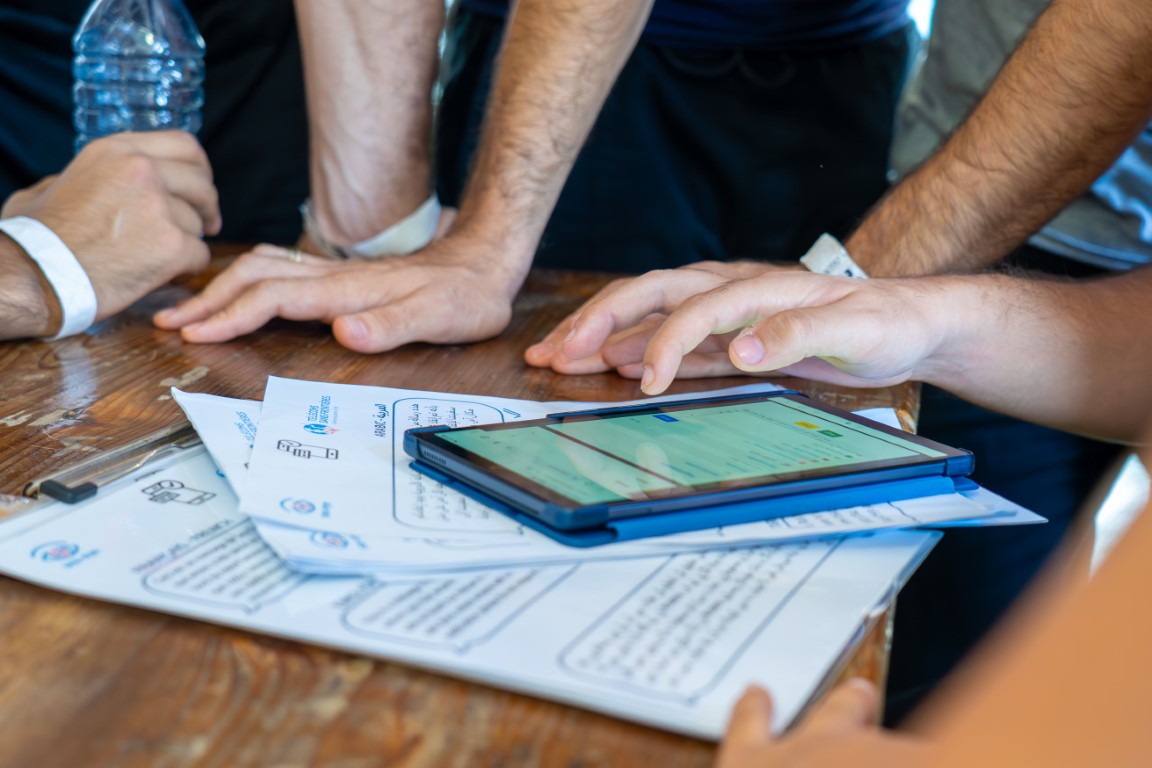Safe Notifications for Rescued Migrants in the Mediterranean
- More than 4,200 people since the start of the project were able to notify their family that they were alive
- 4 organizations have used the solution on their search and rescue missions
- Rescue notifications sent to more than 70 countries
Context
In recent years, the number of people crossing the Mediterranean has increased dramatically. Migrants intercepted on their way to Europe are often detained in centers where they suffer inhumane conditions. This is particularly the case in Libya, where people often face flagrant violations of human rights, including forced labor, sexual violence, torture and extortion.
Because of the perilous crossing and the lack of safety measures, thousands of people lose their lives every year by drowning or waiting for rescue teams.
NGOs have been conducting search and rescue (SAR) operations in the Mediterranean for many years, following maritime law, saving lives. By the time they are reached by SAR teams, the men, women and children in distress have struggled for several long, terrifying hours, fearing for their lives. They are cold, scared and exhausted after this traumatic experience and a long, arduous journey. After being rescued, one of the first things they need is to tell their families that they are alive.
Our mission
To respond to this critical need, TSF created a humanitarian notification system that enables rescued people to securely reassure them that they are safe. The project aims at providing psychological relief to the survivors and their loved ones through a technical solution that enables rescued people to send a predefined message.
A message to loved ones: psychological relief for survivors
Survivors have often lost or damaged their mobile phone, or have no network signal in the middle of the sea. They know that their silence means fear and anxiety on their family’s side, and until the NGO’s boat reaches the port, which can take several days, they aren’t able to reassure them. This causes great distress after the traumatic experience they have just gone through. Many already struggle with mental health after months or years of facing traumatizing situations.
When on the SAR boat, TSF enables survivors to fill in the phone number of a family member so they receive a notification by SMS, informing them that they have been rescued in the Mediterranean Sea and are now safe. Being able to send a message to their family represents psychological relief for rescued people. It eases their anxiety and worry, and greatly reassures their loved ones.
"The main thing that plagues your thoughts is the desire to reach your parents and family to tell them that you are finally in safe hands. Unfortunately, you are denied the sound of their voices, but you are able to send them a message to let them know that you are on the ship and that you are okay."
A rescued person who was able to send a message with TSF’s solution.
Working with search and rescue organizations
In collaboration with several international NGOs working on the ground, such as Médecins Sans Frontières (MSF) and Sea-Eye, TSF installed this one-way notification system on search and rescue vessels and trained the staff to use it. It is managed by the onboard staff members and maintained by TSF. With the support of the onboard staff, survivors use a tablet to select their language, enter the number they want to reach as well as their own first name, and are able to send the predefined message to their family.
For safety and privacy reasons, the message cannot be edited, cannot be replied to, and no personal information is stored.
Testimonies
“Being unable to inform their loved ones that they survived the journey and are safe, is a major stress factor for survivors before they arrive in a place of safety.” - A SAR staff member
“Survivors on board were extremely grateful about the possibility of sending a message!” - A SAR staff member
"The main thing that plagues your thoughts is the desire to reach your parents and family to tell them that you are finally in safe hands. Unfortunately, you are denied the sound of their voices, but you are able to send them a message to let them know that you are on the ship and that you are okay." Survivor, user of the solution.
“It’s wonderful – you should see the faces of the people after they send the message!” - A SAR staff member
Photo credit: Anna Dütsch, Sea-Eye.















